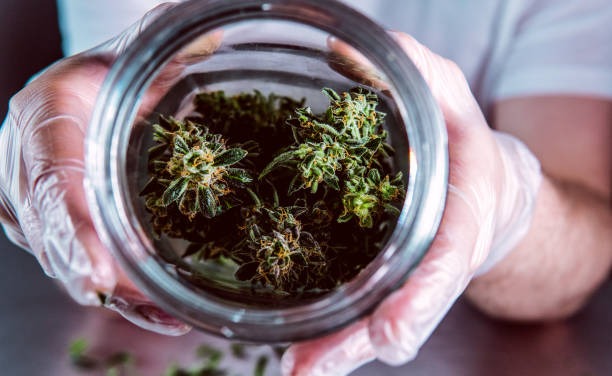Menu list
The Shift in Public Attitude Toward Cannabis
The perception of cannabis has changed dramatically over the past decade. Where once cannabis was associated primarily with countercultures and illicit use, communities now view it through a lens of health, wellness, and responsible enjoyment. Driven by increasing legalization and new scientific findings, more people recognize that cannabis can fit into a balanced lifestyle. Visiting a Connecticut dispensary is often the first step for individuals interested in exploring cannabis for personal wellness or medical management, setting the tone for a more open-minded and informed conversation. The presence of licensed dispensaries contributes to a shift in community attitudes as they provide accurate information, legal security, and a curated product selection.
Professionalism and Safety in Dispensaries
Modern dispensaries take pride in setting high standards for professionalism and consumer safety. Gone are the days of dimly lit, secretive storefronts. Today’s establishments operate more like medical clinics or boutique retail shops, emphasizing quality assurance and expert guidance. Staff are trained to assist customers in understanding product types, dosages, and effects and are encouraged to answer questions openly and without judgment. This professional approach reassures newcomers while empowering seasoned users to make well-informed choices.
State and local compliance require strict inventory management, testing, labeling, and storage protocols. Customers benefit from consistent, detailed information about the origins and potency of each product, reducing anxieties and fostering trust. Safety remains a top priority, ensuring that all products are free from contaminants and properly labeled, which reinforces the industry’s commitment to public health.
Education as a Tool Against Stigma
Dispensaries are stepping up as hubs of accessible, science-backed education. They replace outdated stereotypes with facts by offering classes, informational pamphlets, and one-on-one consultations. Customers learn about cannabinoid profiles, methods of consumption, and responsible usage practices. This educational emphasis also extends online, with dispensaries curating blogs, webinars, and social media campaigns that address common questions and misconceptions.
Dispensaries’ transparent approach to cannabis information supports healthy decisions, dismantling misunderstandings that fuel stigma. Educational resources break down complex topics, making cannabis approachable for anyone—from first-time users to curious family members seeking information for loved ones. According to an article from Scientific American, well-informed consumers are less likely to misuse or abuse cannabis and more equipped to appreciate its wellness benefits.
Promoting Wellness and Health
Health and wellness are at the heart of the modern cannabis movement. Dispensaries are increasingly aligned with medical professionals, working to integrate cannabis therapies into existing healthcare conversations. Patients find relief from symptoms such as chronic pain, anxiety, and sleep disorders, often under the supervision of trained staff. For residents holding an MS medical marijuana card, dispensary personnel can provide guidance tailored to their specific conditions and legal entitlements. Medical professionals frequently collaborate with dispensaries to recommend appropriate strains, dosages, and consumption methods, ensuring safety and efficacy.
Displaying peer-reviewed studies and providing trusted product information builds credibility and motivates responsible use. Consumers interested in holistic approaches learn that cannabis is not a one-size-fits-all remedy and that consultation can optimize results. In this way, dispensaries reinforce that cannabis use is not just about getting high but about supporting one’s overall well-being.
Creating Welcoming and Inclusive Spaces
Inclusivity is central to the modern dispensary ethos. From accessible entrances and private consultation rooms to multilingual materials and culturally sensitive staff, today’s dispensaries work to ensure every customer feels valued and safe. The physical layout promotes comfort, with well-lit spaces and approachable displays that invite curiosity rather than intimidation.
Staff training goes beyond product knowledge to include sensitivity and active listening, so patrons can share health concerns or personal experiences without fear of stigma or embarrassment. The result is a supportive environment where people of all ages, backgrounds, and abilities can learn about cannabis at their own pace. These welcoming touches help set a new standard for wellness retail based on kindness and respect.
Community Engagement and Outreach
Dispensaries are not isolated businesses—they are active members of the communities they serve. Beyond selling products, many host health fairs, educational seminars, and charity events to strengthen their local ties. Involvement in community life helps shift perceptions and opens the door to honest conversations about cannabis, further chipping away at decades-old stigmas.
Public outreach often includes supporting local non-profits, collaborating with health agencies, or participating in local events. These initiatives show that dispensaries prioritize not just profits but also public good. By connecting cannabis to broader wellness and service projects, dispensaries demonstrate their commitment to positive social change and responsible citizenship.
Cannabis in Mainstream Media
Positive portrayals of dispensaries and cannabis in the media have contributed to de-stigmatization efforts. Well-researched articles, documentaries, and news segments now highlight personal success stories, emerging therapeutic benefits, and responsible usage instead of focusing solely on controversy or abuse. Popular TV shows and podcasts feature frank discussions about cannabis, normalizing its inclusion in daily conversation.
Media spotlights on innovation in cultivation, sustainability, and social equity initiatives have broadened understanding and fostered greater acceptance. With celebrities, athletes, and medical professionals openly sharing their experiences, stigma is replaced by an informed, nuanced, and diverse portrayal of cannabis culture. This mainstream exposure, amplified by digital media, positively shapes public perception.
The Role of Personal Stories and Advocacy
Individuals who have benefited from cannabis are sharing their experiences more publicly than ever before. Testimonials found in dispensary newsletters or social platforms make the discussion relatable, helping others overcome fear and uncertainty. These personal accounts offer insight into the practical uses of cannabis for pain relief, stress management, and overall quality of life.
Advocacy groups and grassroots campaigns complement dispensary-led efforts by rallying communities, providing support, and influencing policy. As more individuals advocate for thoughtful legislation and compassionate access, the dialogue surrounding cannabis grows more balanced, further dismantling lingering taboos. Personal storytelling and advocacy bring the human element to the forefront, engaging hearts and minds in the ongoing journey to normalize cannabis.





